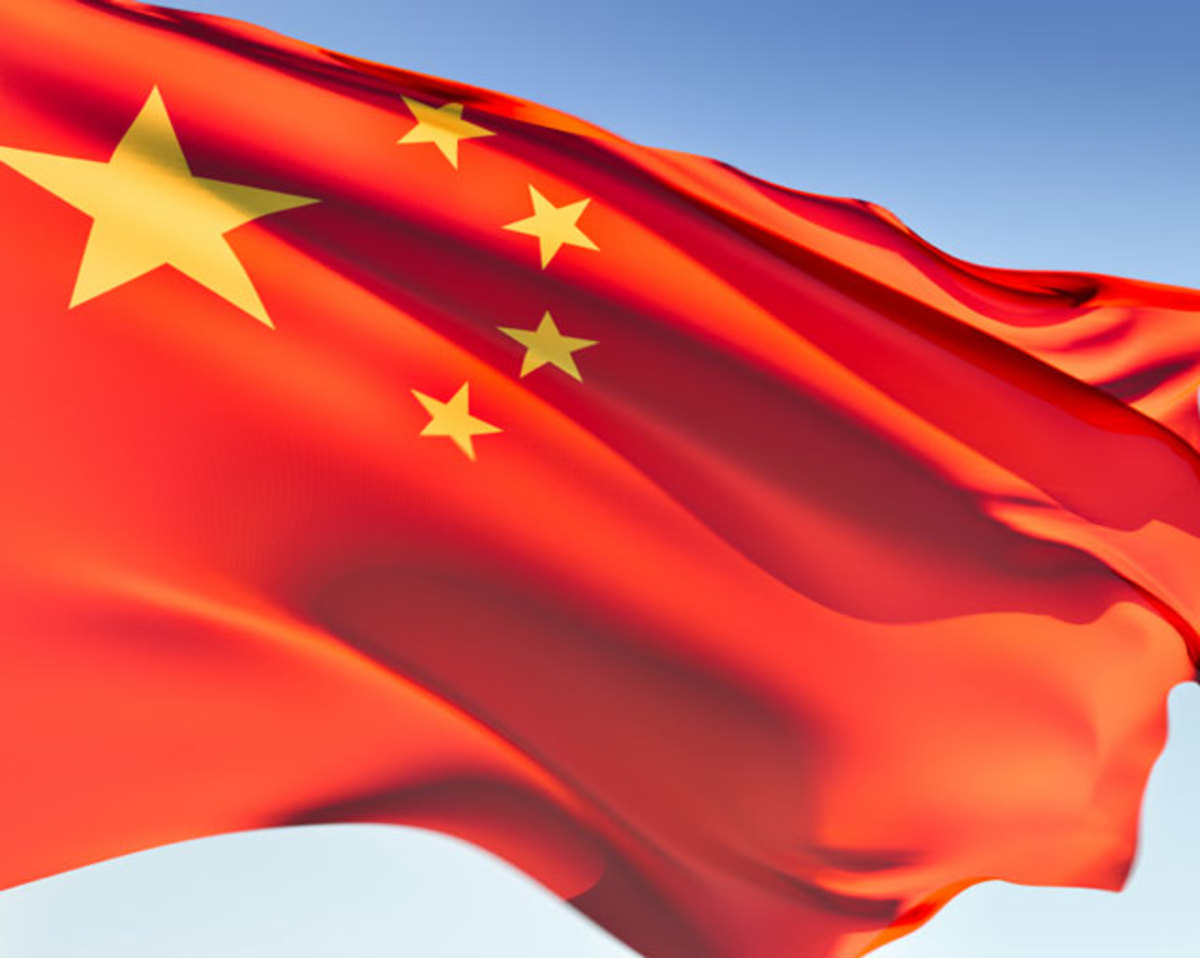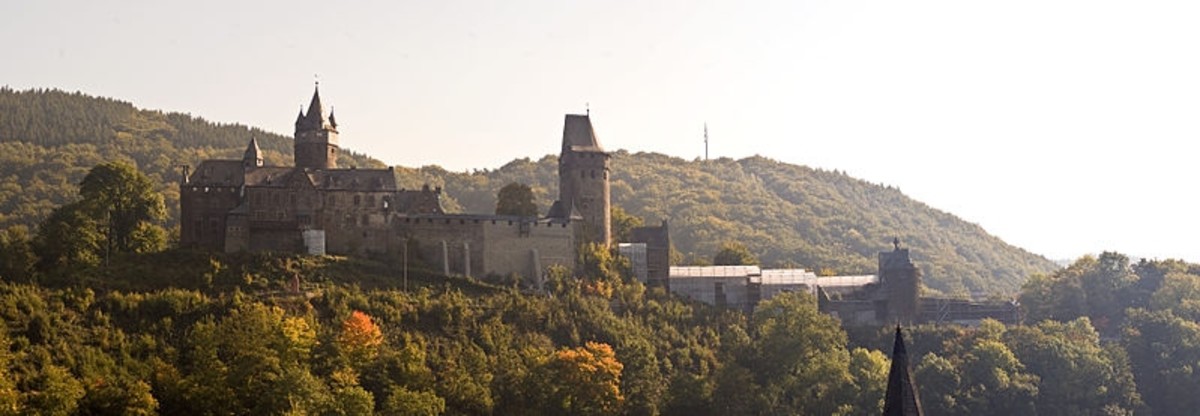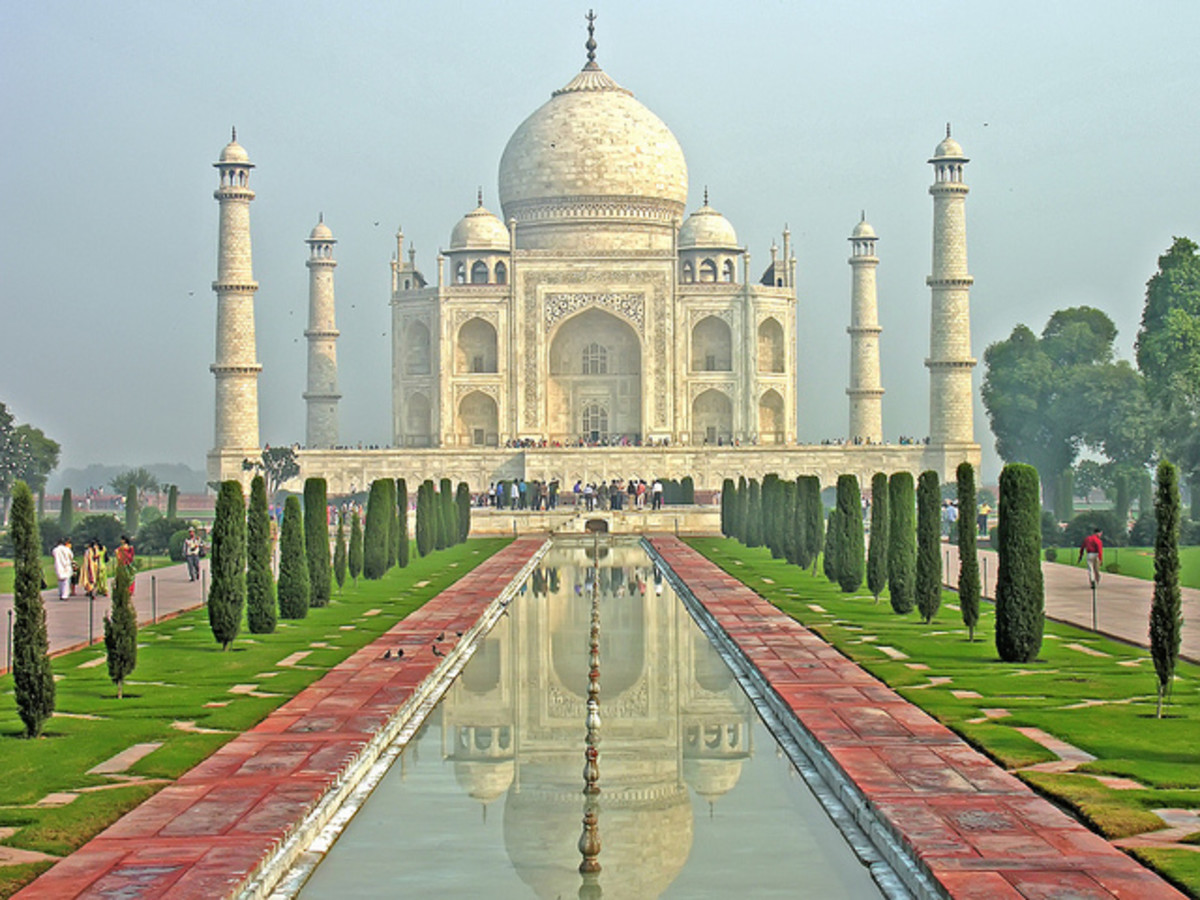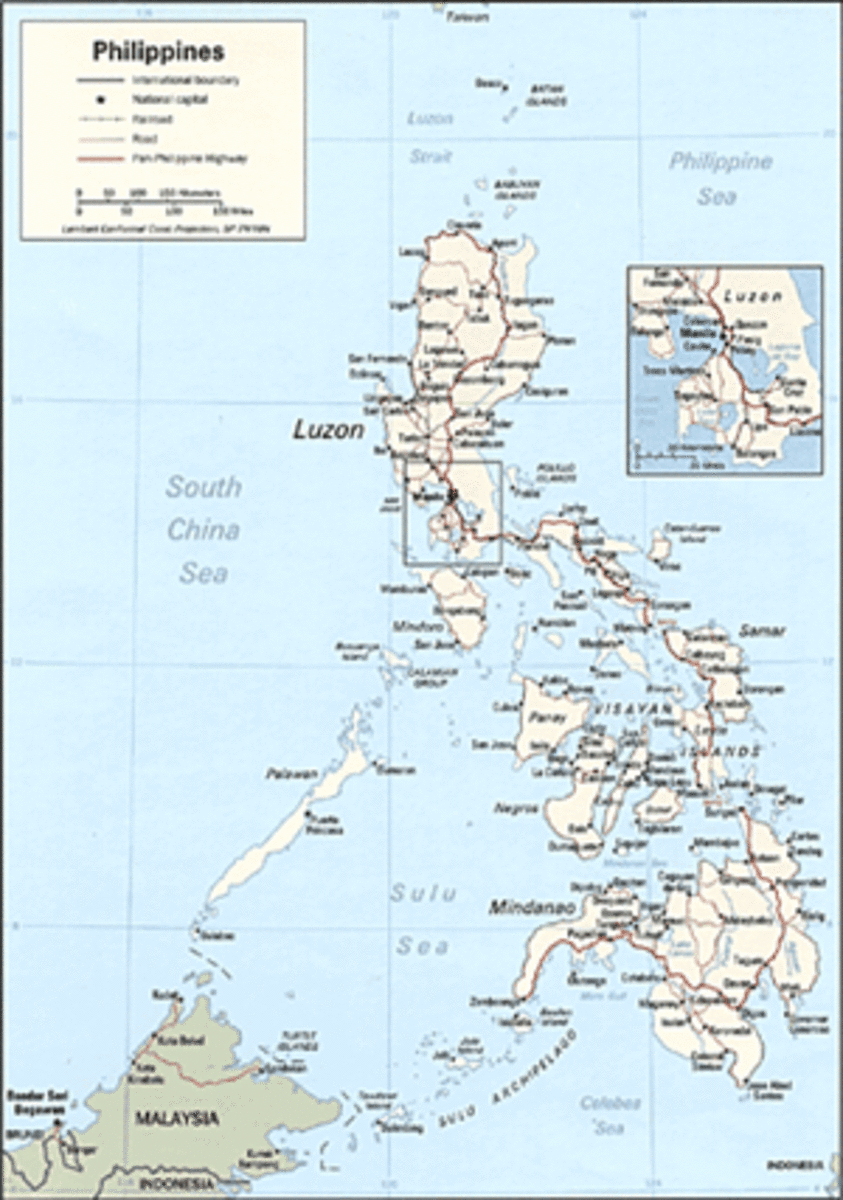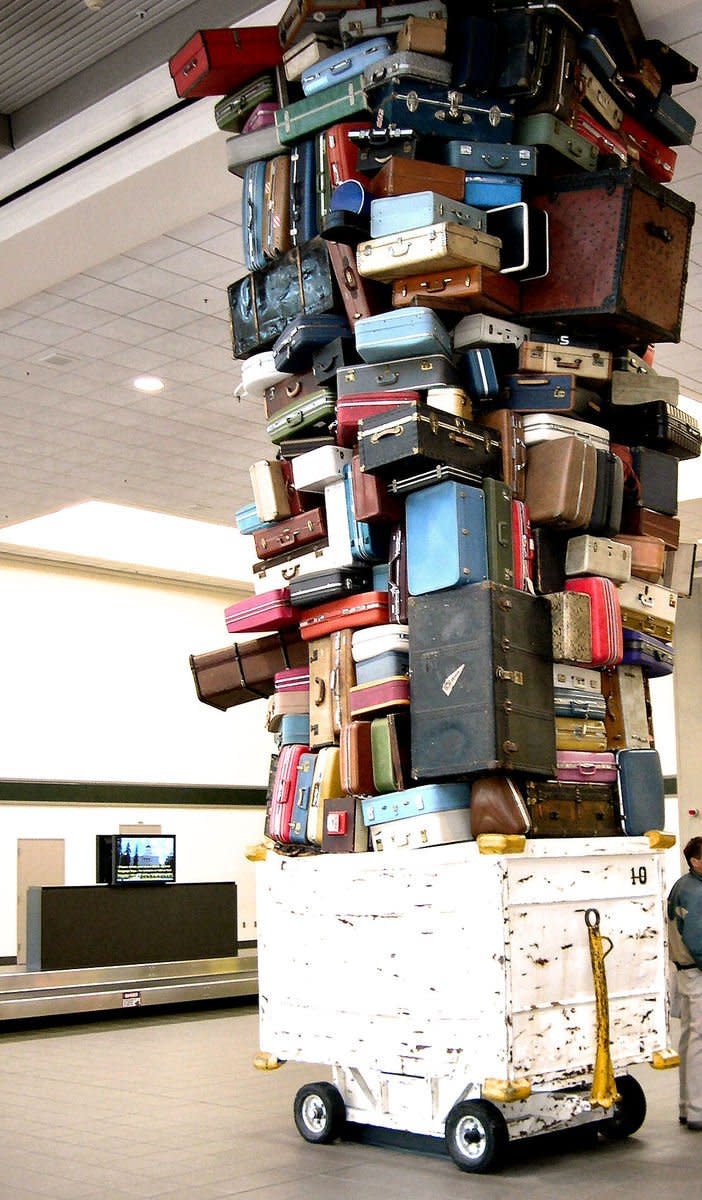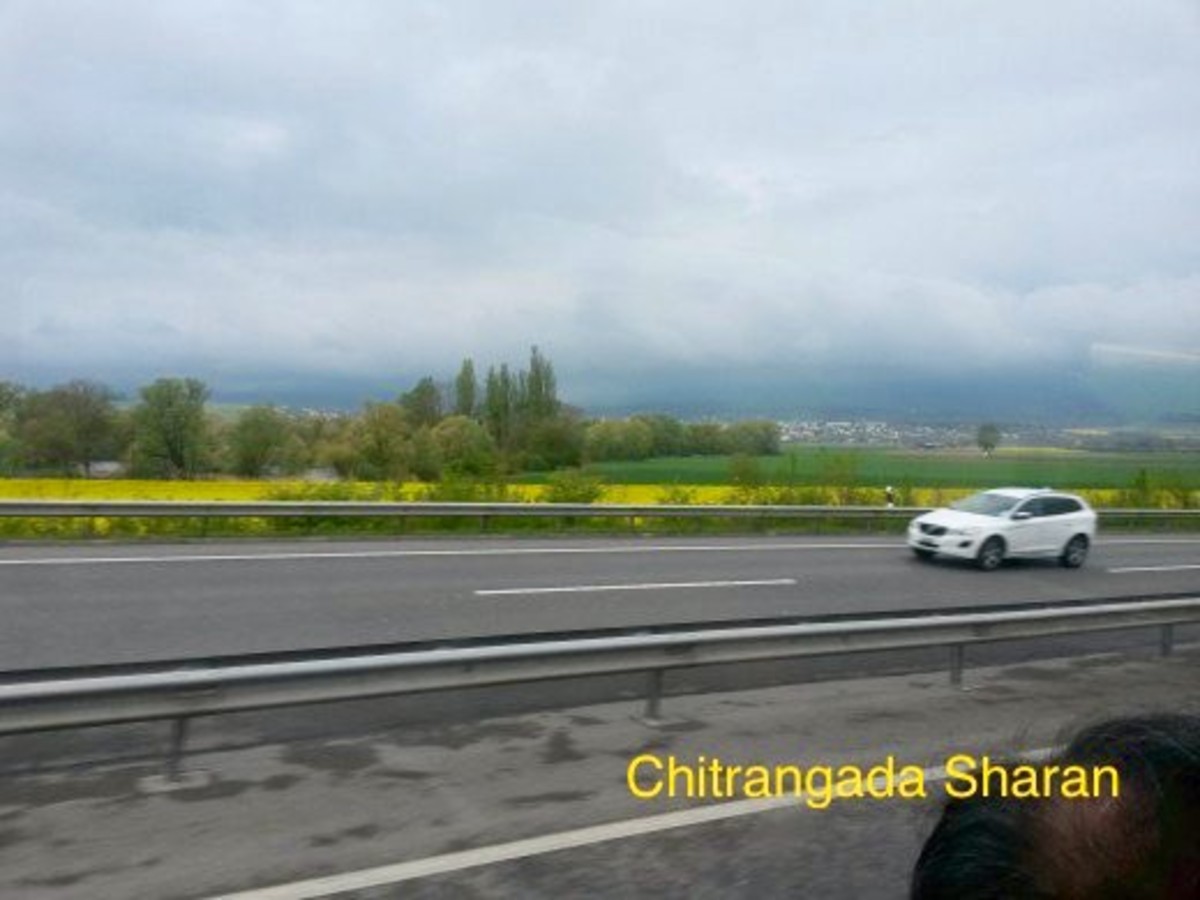A Guide to Independent Travel in China
The Blank Canvas
China - just go there, it's easy
China - a huge country, and a mass of cultures, contradictions, curiosities, sights and sounds. It is also a great destination for budget traveller’s of any age, if they have the time, money and steely resolution that craves foreign travel. This introduction is aimed at the first time visitor who wants to experience the country without the help and hindrance of an organised tour. In other words, it’s a Guide to China for Backpackers based on the experiences of two old traveller’s (55+), but the information here will apply to you, whatever age you maybe.
It's a big country - so where do you start?
So you want to take a trip through China? As it’s such a large country you are never going to see everything there is to see unless you live there, so you need to decide what you want to see and where you want to go in the time you have. I am basing this hub on our personal journey through China, but of course you can choose your own itinerary or adapt ours.
Permission to enter
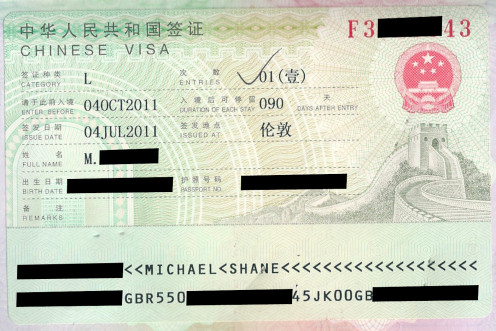
Visas
We procured a single-entry, three month visa before we left the UK. We did this as part of our Trans-Siberian train journey - assisted by realrussia.com a London-based agency that sorted our tickets and visas for Ukraine, Russia, Mongolia and China.
Our Chinese tour began when we entered the country by train from Mongolia and Russia. Our first stop being Beijing, probably the best place to start a tour of China, along with the other two ‘international’ cities - Hong Kong and Shanghai.
Our Chinese tour planning began in earnest once we arrived in Beijing, although we had already researched possible place to visit before we left home. I even went so far as to try to learn some Mandarin language (Michel Thomas Cds) as this was my biggest concern – how would we communicate with the locals?
Once in Beijing, we bought a detailed map of China to help us plan our route. As I said, it’s a big country and as we had three months to explore, we didn’t want to plan too far in advance in case we wanted to alter our itinerary en route. One advantage we had was that we didn’t have to leave China from Beijing so we didn’t need to plan a circular route. This offered us a more flexible itinerary of possibilities than if we had to be back at our entry point when it was time to leave the country. Also, we intended to leave China by an overland route - either into Vietnam, Laos or even Burma, if possible, so we didn't need to end up at an international airport when it was time to leave.
As it transpired, we only used two of our three months before leaving China, but in that time we saw and experienced more than we imagined we ever would, and we travelled at a leisurely pace most of the time, using trains, buses and boats to get around.
China will amaze
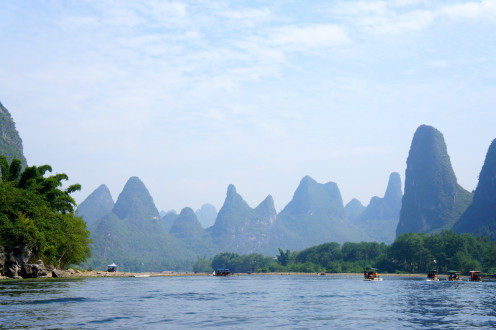
Just a drop in our Bucket List
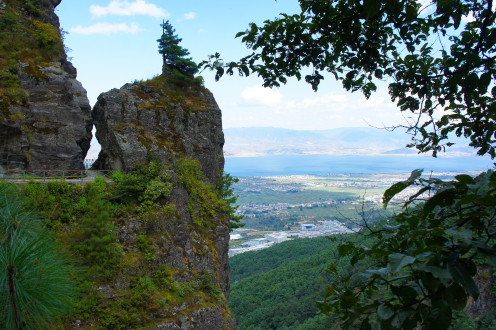
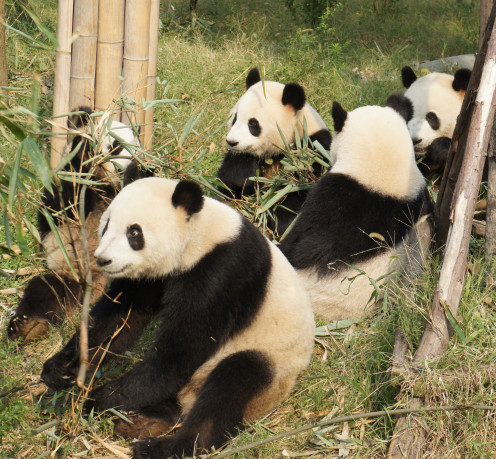
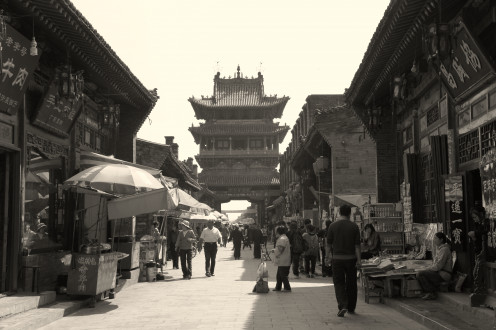
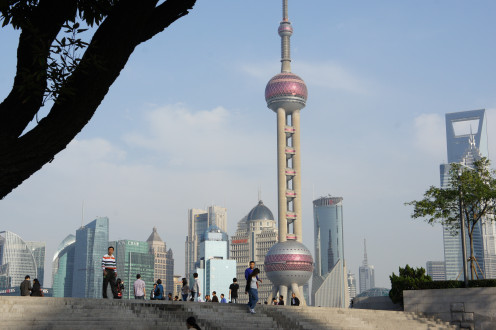
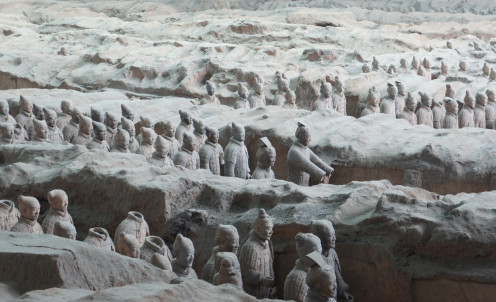
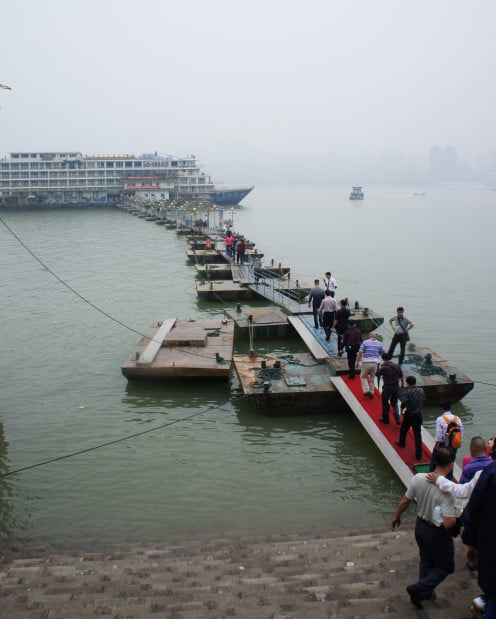
What do you want from China?
For us, our primary goal was to experience life in China while seeing as much of the country as possible in our allotted time. We were also lucky to have a full year of travelling ahead of us - China being just one part of a much bigger journey. We looked upon it as the main course, but also knew that when we finally left, we would be going to other different and interesting countries for dessert.
Creating our Bucket List of China was something we sort of did before we left home. Our principle point of reference was the Rough Guide and the Lonely Planet. At the time of planning we felt we were only dreaming of seeing these places, the reality of being there wouldn’t kick in until we actually crossed the border and entered China.
We weren’t looking for ‘party destinations’, (although I will never shun a good party), nor were we intending to do too much wilderness trekking or hi-5 sports (though we will have a go at most things, including a long trek). What we wanted was to see how Chinese people lived; eat their food; see some of the important sights and gain a true perspective of the country, especially away from the main cities. In the end we achieved all these things and more.
China - think big, be flexible and be brave
Having been to Hong Kong many years before, we chose to leave it off our itinerary. We also considered a side-trip to Tibet and some time on Hainan Island on the South China Sea coast. Again, we weighed up the options and decided to leave out Tibet (for a variety of reasons), and to give Hainan a miss too, as we knew we would be island hopping later on in the year. Despite this rough idea of places to go, we really had no idea how we would implement the plan, hoping that things would become apparent once on the road, relying on our flexibility and wits to achieve our goals.
So, my first bit of advice to the potential China traveller is think big, be flexible and be brave – China will amaze, enchant, shock and irritate, all in equal measures, but the same can be said for just about any country, including your own. The ability and desire to step outside your comfort zone is the essential quality necessary for any travels in foreign countries. China is no exception.
Our Bucket List
There are few ‘must see’ sights, but everything in between is equally important and would only become apparent once there. Using our big map and the guide books, we traced a possible route which took in the following places:
1. Beijing
2. Ping Yao
3. Xian and the Terra Cotta Army
4. Chengdu and the Giant Pandas
5. The Yangzte River
6. Shanghai
7. The River Li
8. Kunming
9. Dali
10. Southern China – sights unknown
Start: Beijing
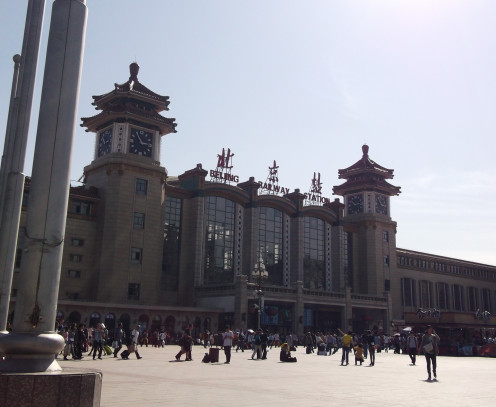
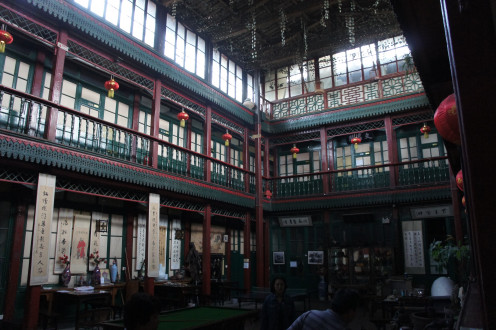
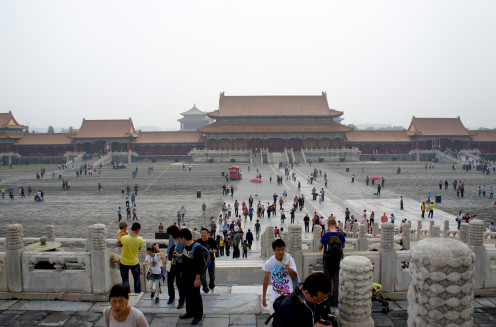
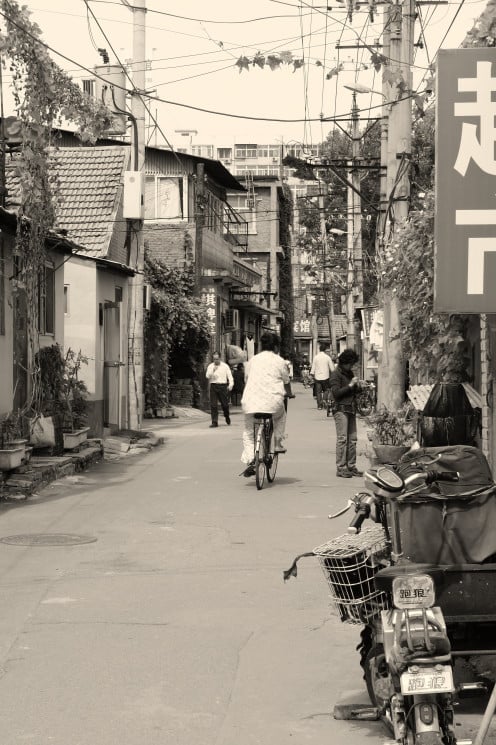
First Stop Beijing
Beijing is the ideal first port of call in China. It’s the country’s capital as well the home to many of China’s most iconic attractions – The Great Wall, The Forbidden City, Tianamen Square, the Summer Palace and The Temple of Heaven, to name a few. It is also a great place to become acclimatised to the Chinese way of life – food, language, crowds and customs. In Beijing, English is widely spoken and understood, and there are signs we can read too - lap it up, once you delve deeper into the country, English will become be less frequently seen or heard.
As a budget traveller, the best places to stay in the capital are the numerous guesthouses and hostels in the old city neighbourhoods – The Hutongs. Here you will get a taste of life in traditional communities: the close quarters, the street food and the constant hubbub of daily life.
We stayed in the 200 year old Emperor’s Guesthouse on Dazahlan, a busy, tourist-friendly street situated about 10 minutes walk from Tianamen Square. The Guesthouse is at the end of the shopping street which branches into a maze of alleys and narrow lanes where thousands of Beijingers live, sharing communal toilets, clothes lines and all aspects of their daily lives. The Guesthouse was recommended to us by our neighbours who had stayed there the previous year. It is a wonderful looking building inside and while slightly shabby and definitely “backpackery” it suited us down to the ground with 10/10 for location, friendliness, helpfulness and atmosphere; a solid 8/10 for it’s restaurant, food and cold beer; 5/10 for shabby but quirky rooms and 3/10 for internet connection, (at the time, 2011, internet connection was never great anywhere in China.)
Visiting the Sights
On a package tour, everything is done for you, with a guide and translator thrown. As an independent you have to figure out how to get to the Great Wall yourself.
It’s easy enough to buy into a day tour, either through you hostel or at one of the many travel shops you will see. Ask others, compare prices, but don’t get too hung up trying to save a few Yuan (pointless at an exchange rate of 16 cents to the Yuan). As a westerner in China you will be regarded as well-off, whether or not you are, and over-bartering can be a bit churlish. That being said, you also don’t want to pay over the odds. Ask and compare.
Booking sightseeing side trips through your accommodation is the easiest way to do it. This applies everywhere you go, not just in Beijing. We met people who figured out how to get to the Great Wall by public transport, but we just felt that time was too precious when we could buy into a tour which included lunch, and several other stops along the way, for less than $20 each.
Moving on...
We had the luxury of spending two weeks in Beijing, so managed to see many sights, plus acquaint ourselves with Chinese life, and plan our route through the country.
We decided that our first destination after Beijing would be the ancient city of Ping Yao. This fitted perfectly with our plan – Ping Yao is halfway between Beijing and Xian where the Terra Cotta Army is quartered, so it made sense to stop-off there on our way south.
Trains, Boats and Buses
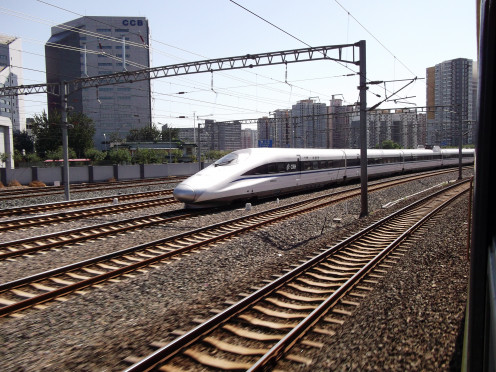
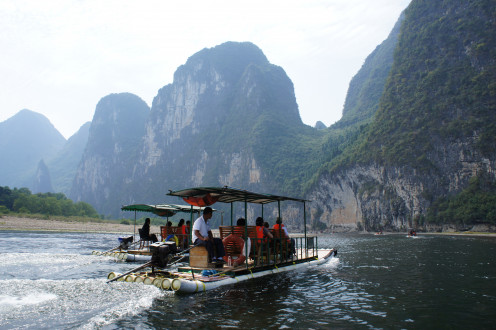
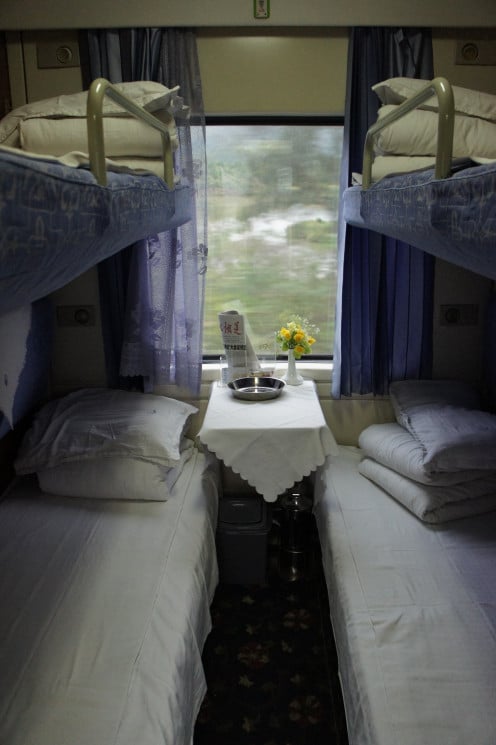
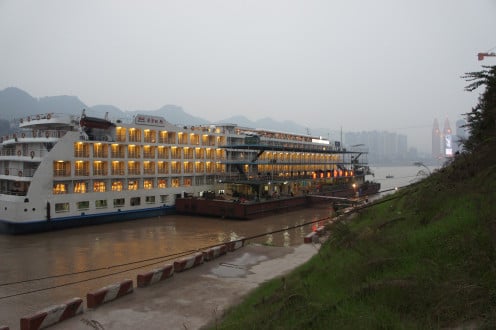
Getting Around the Country
The best way to travel around China is by train. Most major towns and cities are serviced by rail, so again, it’s a no-brainer. But, you need to book tickets and get onto the right train and this can prove difficult, if only because of the language and the fact that once you leave Beijing almost all the signage is in Chinese.
Trains
China is quickly developing a transport infrastructure of high-speed bullet trains, especially between major cities, but mostly there are regular trains pulled by traditional diesel locomotives. These trains come in four main classes.
Hard Seat: just what it says, but it’s the cheapest class and the one where you get to rub shoulders with the working class Chinese on the move. For long overnight journeys you better be prepared for a rough, hard ride with little comfort.
Soft Seat: Slightly more comfortable than the Hard but still pretty tough of soft western bodies.
Hard Sleeper: This is a shared sleeping compartment usually contain six beds stacked three high. They are fairly cheap and we found them do-able depending on who you share the compartment with. The Chinese are noisy, sociable and eat at all times of the day or night. Privacy and personal space is not respected in the way we are conditioned to expect so, if you want an approximation of a western-style train journey then try and book a bunk in the best class…
Soft Sleeper: Four bunks, a door for privacy and security, curtains and little luxuries make this the best class to travel distances in. You still get to share with local people but usually of a higher class, who often speak some English and are almost always extraordinarily friendly.
Booking Trains
Life is too short to battle your way to a ticket office and try and make yourself understood, so the best way to buy train tickets is to ask at your hostel desk where they usually offer this service. They will book for you and have the tickets delivered to the hostel – easy. Allow at least couple of days, especially if you want to travel by either of the sleeper classes as these are booked quickly by Chinese travellers, of which there is a plentiful supply.
A memorable bus journey in Sichuan
Buses
We only took a few long distance bus journeys in China. By far the longest, and consequently the most memorable, was from Chengdu to Danba in the Tibetan hinterland of Sichuan Province (14 hours each way). Long distance journeys on local buses, especially in mountain regions can be both scary and exhilerating. They are crowded and full of the many aromas of China. The drivers lean on their horns all the time to communicate with all the other vehicles on the road; but bus drivers have the loudest horns and tend to win confrontations with lesser vehicles. You have to put your entire faith in whatever God or karma you believe in and hope for the best. That being said, a memorable bus journey is an experience to be treasured if you survive it.
The shorter bus trips we took were less stressful, but only because they were shorter. But in the final analysis - you can't get around the country without doing some bus-time, so you will get used to it.
Boats
One of the most amazing legs of our China odyssey was along the Yangtze River, from Chongqing to the Three Gorges Dam. The journey took three days, travelling on a luxurious river cruiser. There were only six other westerners amongst the 150 or so Chinese passengers and for a relatively inexpensive price we had a lovely cabin with a balcony, three huge and tasty meals a day, a number of interesting stops and a fabulous side trip up the Little Gorges. We booked our river cruise in Sims Hostel in Chengdu and caught a bullet train from there to the mega-city of Chongqing.
We also travelled down the River Li from Guilin to Yangshuo on a motorised bamboo raft with our packs stacked on the seats to keep them dry. This river is home to China's most sublime scenery and a trip down it a not-to-be-missed journey.
Planes
Flying between major cities is a relatively easy option, but not one that we wanted to try on this trip. However we were forced, by circumstances, to take one internal flight whist in China - Xi'an to Chengdu. We were only in the air for an hour, but all the usual faffing about at airports applies - booking a ticket, going through security, checking in, being separated from our luggage; waiting, boarding, flying, baggage collection at the other end and an interminable taxi ride from the outlying airport to the city centre. Give me a train, from city centre to city centre, any day.
Chinese Tourists
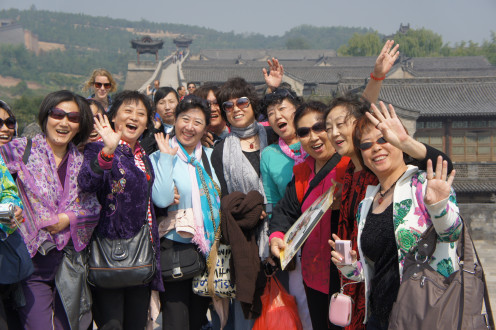
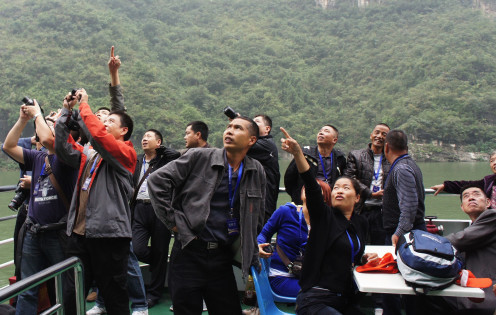
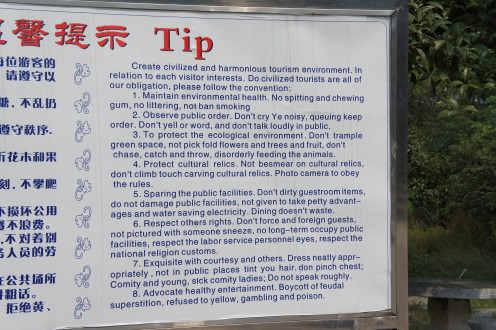
When NOT to travel
Chinese New Year and National Day are going to mess with your head when it comes to travelling. In 2011, there was an estimated 500 million Chinese people on the move during the October 1 National Day holiday, known as Golden Week. Believe me, this is possibly the biggest mass movement of people anywhere on earth. Half a billion Chinese people returning to their home towns for the holidays makes it very difficult for us westerners to get around. Obviously you won’t always be able to plan your China trip around the holidays but for us, with Golden Week in sight, we made it to Chengdu, booked into a good hostel, and laid low for the holiday week. However, even on a normal day, China is teeming with people so be prepared for crowds any time of the year.
I might add however, that one of the nicest things we saw in China was Chinese people enjoying their holidays. Despite the infuriating crowds and endless traffic jams, they took it in their stride and seemed to be having fun.
The table below shows dates for Chinese national holidays (2012) Be sure to check these dates before you go so you can plan ahead for the ensuing chaos that grips the country when the occur.
Major Chinese Holiday Periods
Date
| English Name
| Duration (2012)
|
|---|---|---|
January 1st
| New year
| Sunday 1 - Tuesay 3 January
|
1st day of 1st Lunar Month
| Chinese New year
| Sun 22 - Sat 28 January
|
5th Solar Term
| Qingming Festival
| Monday 2 - Wed 4 April
|
May 1
| Labor Day
| Sun 29 April - Tues 1 May
|
5th Day of 5th Lunar Month
| Dragon Boat Festival
| Saturday 23 June
|
15th day of 8th Lunar Month
| Mid-Autumn Festival
| Sunday 30 September
|
October 1st
| National Day
| Monday 1 - Wed 3 October
|
Some of the Hostels we stayed in (with Links)
Beijing
Emperor's Guesthouse
Impressive, historic, shabby. Great Location
Ping Yao
Harmony Guesthouse
Good backpacker vibe, hard beds, leaky bathroom, nice food, central location in old city
Chengdu
Sims Cozy Hostel
One of the best hostels anywhere. Gardens, secret decks, good wifi, great bar with fab food.
Shanghai
Rock and Wood Hostel
Modern, minimalist, tastefully decorated. two metro stops from Shanghai centre
Guilin
Riverside Hostel
Lovely double room overlooking Blossom River, central location
Yangshuo
Tripper's Carpe Diem Hostel
Very cool backpacker hostel, located in peaceful farming village about 20 min stroll from town.
Kunming
The Hump
In the dead centre of the city with fab deck/garden overlooking main square.
Cloudland
Popular backpacker hostel with OK vibe, reasonable restaurant
Dali
Jade Emu
Aussie-run hostel in a fabulous Chinese-style building with big comfy rooms and a very cool courtyard/bar with popular pool table. Just across the road from Dali Old City.
Accommodation along the way
China has some fantastic hostels catering to backpackers. Some of these are extremely well run, almost always very helpful and often quite clean and comfy. You have to take potluck, follow the advice of other travellers, read the reviews in the LP, on Trip advisor or Hostelbookers.com. We experienced all kinds of places. Some had rock hard beds (in Xi'an), others had leaking bathrooms (in Ping yao); Some were luxuriously stylish and modern (Shanghai); others were traditional and homey (Beijing). Most had western style toilets but some had ‘squatters’ – (Danba and Wuhan). Our absolute favourite accommodations were Sims Cozy Hostel in Chengdu; Tripper’s Carpe Diem in Yangshuo and The Jade Emu in Dali.
We mostly tried to book our first night’s accommodation in a new location in advance. We did this by phone or via internet from our current hostel. In choosing a hostel we used recommendations from other travellers, referenced the Lonely Planet or sifted through the many flyers available in the hostel we were already staying in. It invariably worked and we only had to wander about looking for somewhere to stay on a couple of occasions.
Learning the language
Before we left home I had a go at learning Mandarin via a CD course by Michel Thomas. It was difficult but I did pick up a few words and phrases that I used to try and strike up conversation with Chinese train travellers, for example: "Hello, my name is Mick and I am Australian but I live in England." Sometimes I was understood and other times, despite saying the phrase identically each time, I was met with blank stares and shaking heads.
We also used a Berlitz Mandarin phrasebook which was very helpful, as the book has words and phrases in English, Pinyin, as they are pronunced and in Chinese characters; just show someone the phrase you want to say and they can read it from the book.
I spent a great deal of time trying to memorise words and phrases from the book as we went. I also made a game out of trying to decipher Chinese characters. I suppose I added a dozen or so characters to my vocabulary, not many out of over 2000, but at least I gained a smidgen of understanding of how the written Chinese language works and had fun with it on long coach trips.
Language and communication
OK, it’s not always easy but if we can do it, just about anyone can. All hostels have English speaking staff and I reiterate – Hostels are the place to plan your next move, always. We had some problems when it came to buying certain items, particularly stuff from pharmacies. In Chengdu we walked the street for hours while Sheila tried to by some medicine for an upset stomach. Nothing is written in English so every tube, vial and bottle contains an unknown potion. We actually had an empty container of medicine that we had previously bought in Beijing. In Dali we showed it to at least half a dozen pharmacies and the shop assistants just giggled and shook their heads. I finally lost my cool when I spotted the exact same box on a shelf, despite being just being told “No have.” It seems that the shop girls are so unused to westerners that they go all silly and useless when confronted with a pair of us. I suppose you just have to take every situation as it comes and deal with it. The longer you are in China the easier it gets – gestures, smiles, a few Ni Hao’s and Xie Xies – it’s all about being flexible, tolerant and friendly.
Health & Safety
As an independent traveller you are on your own out there, without a tour guide and an itinerary to help and protect you. You have to acclimatise yourself as quickly as possible. But Westerners are rarely hassled, robbed or mugged, possibly because legend has it that the death penalty applies to Chinese people who assault or rob us. I must reiterate - this is one of those apocryphal travellers’ tales that crops up repeatedly when you are on the road. Another is the one about the Swiss girl (or was she British, or American?) who got her foot stuck in a squat toilet while having a shower – it’s entirely possible, but I heard the same story several times in different places – it's still funny though, especially since we had a bathroom in the Danba hostel with the squat toilet hole directly under the shower head and we could easily have stepped in it.
Some tips for a healthy, safe and happy journey through China
- Eat local food - (including street food, but be careful and selective) to build up an immunity, but make sure the level of cleanliness is reasonable.
- Don’t drink the tap water - drink beer, bottled water or tea instead.
- Carry hand sanitiser and that modern traveller’s essential – Wet Wipes.
- Be prepared for some totally outrageous toilet experiences, especially at remote, ramshackle rest stops during long bus trips. (Practice your squatting technique before leaving home!)
- Take care walking city streets – people actually drive motorbikes on the pavement, and the roads are deadly with traffic.
- As a rule, don’t engage in conversations about politics or human rights. As a foreigner you won’t see too many abuses, but they probably happen without us noticing or realising.
- Get used to your personal space being infringed upon, but stand your ground if you’re being treated impolitely, or pushed and shoved, otherwise you may never be served, or get a seat on a bus.
- Don’t cause someone to ‘lose face’. This is incredibly important, and hopefully you will know when you’re pushing it. Treat others as you would expect to be treated, and ease any minor altercations with a smile.
- Offer cigarettes as an instant ice-breaker (carry a pack or two even if you don’t smoke, you never know when you may need to bond with strangers – in our experience, often).
- Use your common sense when it comes to drinking, drugs, and any other dodgy activity.
- Watch out for shady foreigners. You are more likely to be robbed by another westerner in a hostel than by a local.
- Master those most important words – Hello, Thank you and No thank you - in Mandarin of course.
- Smile, smile, smile.
Our route
The name translates to Northern Capital (Bei - North; Jing - Capital).
Ancient Ping Yao city is 700 years old and looks it - fascinating
Huge metropolis of 13 million. Gateway to Tibet, home to the Giant Pandas
Hidden in the Himalayan foothills, this Tibetan ethnic enclave is dark, foreboding and oppressed. Spectacular landscapes, scary bus rides.
Awesome Megalopolis - 30 million inhabitants. Pick up the boat for a three day cruise down the Yangtze River.
What a city - stand on the Bund and stare across the river as Pudong lights up at night.
Picturesque town on the River Li and gateway to China's most beautiful landscapes.
Another whopping great place (6 million), called the City of Eternal Spring. We took a week long side-trip to wonderful Dali from here.
Jinghong, by the Mekong River, is on the Tropic of Cancer. It was our last stop in China before we headed south to Laos
Our Travel Route
From
| To
| Method of Transport
|
|---|---|---|
Ulaan Bataar
| Beijing
| Trans-Mongolian Express
|
Beijing
| PIng Yao
| O/Night Hard Sleeper
|
Ping Yao
| Xi'an
| O/Night Hard Sleeper
|
Xi'an
| Chengdu
| One hour Internal Flight
|
Chengdu
| Danba
| 14 hour bus ride to hell
|
Danba
| Chengdu
| 15 hour bus ride from hell
|
Chengdu
| Chongqing
| 3 hour bullet train
|
Chongqing
| Wuhan
| 3 nights Boat - Yangtze River
|
Wuhan
| Shanghai
| 6 hours Bullet train
|
Shanghai
| Guilin
| O/night Soft Sleeper
|
Guilin
| Yangshuo
| 3 hours bamboo Raft
|
Yangshuo
| Guilin
| 2 hours bus
|
Guilin
| Kunming
| O/night Soft Sleeper
|
Kunming
| Dali
| 6 hours Bus
|
Dali
| Kunming
| 6 hours Bus
|
Kunming
| Jinghong
| 7 hours Bus
|
Jinghong
| Luang Namtha (Laos)
| 7 hours Bus
|
Step by step, city by city, from Mongolia to Laos - this table shows our route and methods of travel during our two months in China.
Culture Shock!?
China positively sizzles with energy and excitement at every turn, so much so that it can become exhausting after a while. So, if you plan to spend longer than a couple of weeks in the country then you will need to allow yourself time, once in a while, to just chill out, relax, and stay out of the the fast flowing, tumbling river that is mainstream life. This is where a good hostel becomes the perfect refuge; a place where you can escape the incessant cacophony of noise: chatter, shouting, automobile horns, ear-piercing motorbike whines, piped-music and a thousand other aural distractions. This symphony of daily life is inescapable as soon as you step out of your accommodation and in my opinion, one of the biggest culture shocks that you will experience. It's not all bad of course, and it's what you get in a country of 1.5 billion people - embrace it.
With the sound comes the people. Some how they mostly rub along together and despite the almost total lack of personal space in public life, the Chinese still find the peace of mind to create great artworks; design and build amazing structures and dally over elaborate, mouth-watering feasts. It's that contradiction again, that makes this country so fascinating for us poor westerners.
It's hard to quantify culture shock as it means different things to different people and I can only see it through the eyes of a western man, albeit one who has travelled a bit. The following lists are my objective attempt to define culture shock, the good, the bad and the inexplicable:
Bad Culture Shock
The Transport Infrastructure
The relentless construction of bullet train lines across the landscape seems to spare nothing in it's path. Pylons are built in the middle of villages and people are forced to relocate if they are in the way. By comparison, think of the palaver in England over the High Speed Rail Line (HS2) - one line between London and Birmingham that may never be built because local people along the way don't want their world interfered with. This doesn't happen in China - they just build, regardless.
The Buildings and Development
So much of old China has been built over, it seems a case of 'Old is Bad and New is Good'. But honestly, there are entire cities being built that have no one in them - Ghost Cities they are called - it's rampant, corrupt over-development, plain and simple. And that Three Gorges Dam is an incredible project but at what cost, not only in terms of dollars, but in lost landscape and homelands?
The Living History
Anything remotely historical is turned into a tourist attraction. Ethnic minorites are made into curiosites for the majority, ruling Han Chinese to gawk at and exploit (We saw billboards that depicted as much and even we could understand the visuals).
Sino-Centric
The Chinese see themselves at the centre of the world. In fact the Chinese word for China, Zhong Guo, means 'Middle Kingdom', amongst all the other 'Kingdoms' of the world (USA, UK etc).
The Food
You can't knock the food but there are some ruthless, unpalatable things on the menu too including Scorpions, dog, chicken-head soup and just plain bad meat.
The Music of Life
- The noise of China can do your head in. My sub-list of noise that's wrong includes:
- Ear-piercing folk tunes
- Amplified advertising jingles blaring from every shop
- Car, truck and bus horns - non-stop blaring
- People everywhere shouting into mobile phones
- Kung-fu videos shown at full volume during coach trips
- Amplified tour guides at attractions, all competing for their various groups' attention
- Men clearing their throats and hoiking up phlegm - we called it the 'Dawn Chorus', especially bad first thing in morning but endemic at all times
Lack of Rules
In Britain, people queue for everything as a matter of habit and courtesy; in China it's a stampede. Motorcycles drive down crowded footpaths honking their irritating little horns for pedestrians to get out of their way. Personal space is extremely tiny and is infringed many times during the day, you just have to get used to and try and stand your ground while not getting too stressed. Social etiquette is so very different, especially obvious in restaurants where people throw their food scraps, cigarette butts and rubbish on the floor, leaving a trail of destruction after every meal.
Ostentatious displays
Every nation has its posers and show-offs. In China, the rising middle-classes show-off their wealth in peculiar ways, from the brands of cigarettes they smoke to the vast amounts of food they order in restaurants, then don't eat, just to show that they can afford it.
I was flabbergasted in Xi'an by a palacial, Greco-Roman building devoted solely to selling Rolex watches, but devoid of customers. This glaring display of ostentatious Capitalism is everywhere. In Chengdu, we walked through a huge shopping mall, several stories high, that just sold household furnishings - bathrooms on one floor, kitchens on another etc., but just us and the shop assistants roaming the gleaming halls.
"It's not smog, it's mist"
While ethereal mist plays an important role in traditional chinese art - the vague shapes of mountains barely defined in the mystical fog - the midday pea-souper we found ourselves in at Xi'an was at least 50% smoke, belched from the vague outlines of factories that litter the landscape around the city. I commented on it to a young, well-educated Chinese man who had befriended us and was told defensively, that it was not smog but mist.
Toilets
For full-on culture shock, nothing beats some of the Chinese toilets you may happen upon. I shan't say anymore on the matter, except that the ones in your hostel will be about as good as they get, so my best tip here is that you should use the hostel facilities for a number two, rather than take a gamble on finding a tolerable public toilet later on, because believe me, some of them are beyond hellish.
Good Culture Shock
The futuristic transport infrasture.
The Beijing Metro was improved for the 2008 Olympic Games. It's amazing, with it's hologram advertising flickering in the windows as the sleek carriages hurtle through the tube tunnels under the city.
The sheer magnitude of the bullet train lines being laid across the country. Armies of pylons parade across the landscape into the distance; there seems to be no stopping the march of progress.
The Buildings
Jaw dropping buildings, from the vast complex of the Forbidden City to the space needles of Pudong and the ranks of giant tower blocks stretching across the horizon near Nanking.
The Living History
Someone we met who lives in China told us that each ruling dynasty rebuilds the country in its own image, over the top of previous dynasties. The current dynasty is concerned with rebuilding everything in a modern hi-tech style. Nevertheless, places like Ping Yao, the medieval walls and Terra Cota Army of Xi'an, and the quaint and colourful streets of Dali Old Town still manage to evoke the past, even under the shadow of the ruling Han Dynasty.
The Food
Everyone likes Chinese food...don't they? The food you get in China far transcends the westernised, Cantonese stuff we used to get at home. There are all the usual chow miens, chop sueys, spring rolls and dim sums, but most memorably for me was the hot and spicy cuisine of Sichuan - diced chicken with chilli and peanuts and the Chengdu Hot Pot for example; The biggest surprise for me was discovering the delightful cuisine of Chinese Muslims. In Bejing I had a dish of spicy fried aubergine with grilled lamb and flat bread - it was goood! The Muslim Quarter of Xi'an is perhaps THE place to sample all the Muslim dishes of China, just wonderful.
The Music
Although I'm not a big fan of Chinese music per se (under-statement), one of the most uplifting things we saw was the Chinese love of music, singing and dancing. In just about any public park you will see people folk-dancing, ballroom dancing, singing to the accompaniment of shrieking violins or bursting forth enmass in impromptu choirs. They love it and it's infectious.
Free Enterprise
Dispel any preconceived notions you may have of an austere life under a communism. Chinese free enterprise makes the US look like Russia in the 1950s (a total exaggeration of course but it's the best I could come up with). Markets and emporiums abound and everywhere there is buying, selling, trading, advertising, bartering - it's what they do - they're irrepressible capitalists.
Lack of Rules
OK, so China is a Communist state ruled by a dictatorship and at certain points in its history the daily life of ordinary people must have been grim and oppressive. But from what we saw, there appears to be few rules and regulations governing daily life. You can smoke anywhere, drive your bike on the pavements and even into shops; chuck your food on the floor, eat, drink, shout, sing and do just about whatever you like, so it appears (except express political dissent).
Friendliness
Not everyone is friendly, of course, but everyone we met was, and we met them because they were friendly. This is partly because we westerners are still relative novelties in many parts of the country and even if there are lots of us about in the bigger hostels, once you step into that swirling river of people you are suddenly very insignificant drops in the Chinese ocean.
Summary
So ends this most basic of introduction to independent travel in China. I hope to upgrade this hub over time, especially if readers' comments contradict my 'facts' or description of experiences. I think China is changing and evolving all the time, faster than any other country, so please help me keep this info up-to-date and relevant.
Xie xie
Salty Mick
November 2013
The good, the bad and the horrible
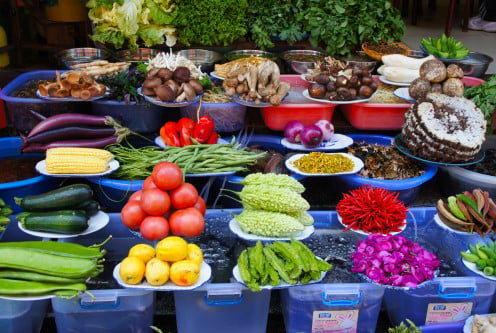
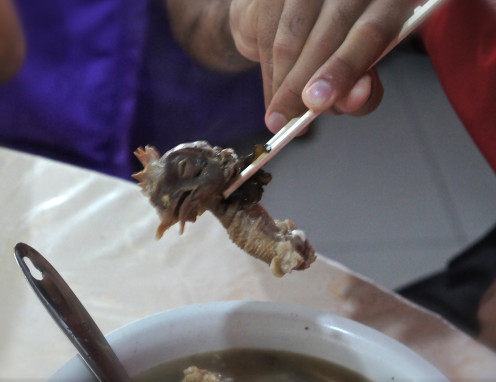
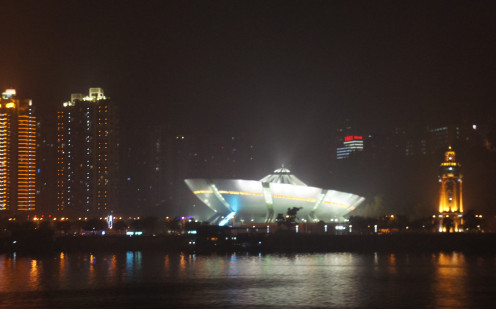
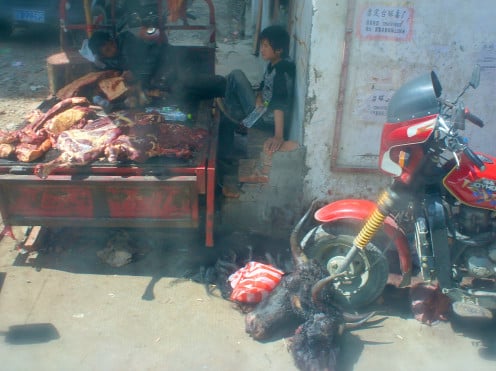
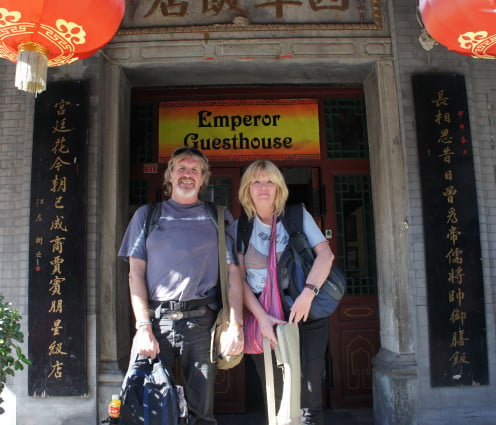
About Us...
Mick is an Aussie and Sheila a Brit, both semi-retired but young at heart (I'm 27 in my head), and are based in Norwich, England. We love travelling and exploring the cultures of other countries, but while we are both experienced travellers, we tend to approach each trip we make with the same level of naivety, first-timer passion and enthusiasm that we had on our first trips together, often repeating mistakes and re-learning lessons. Hopefully this hub will help prepare you for China, enabling you to make your own mistakes but have fun in the process, just like us.
© 2013 saltymick

